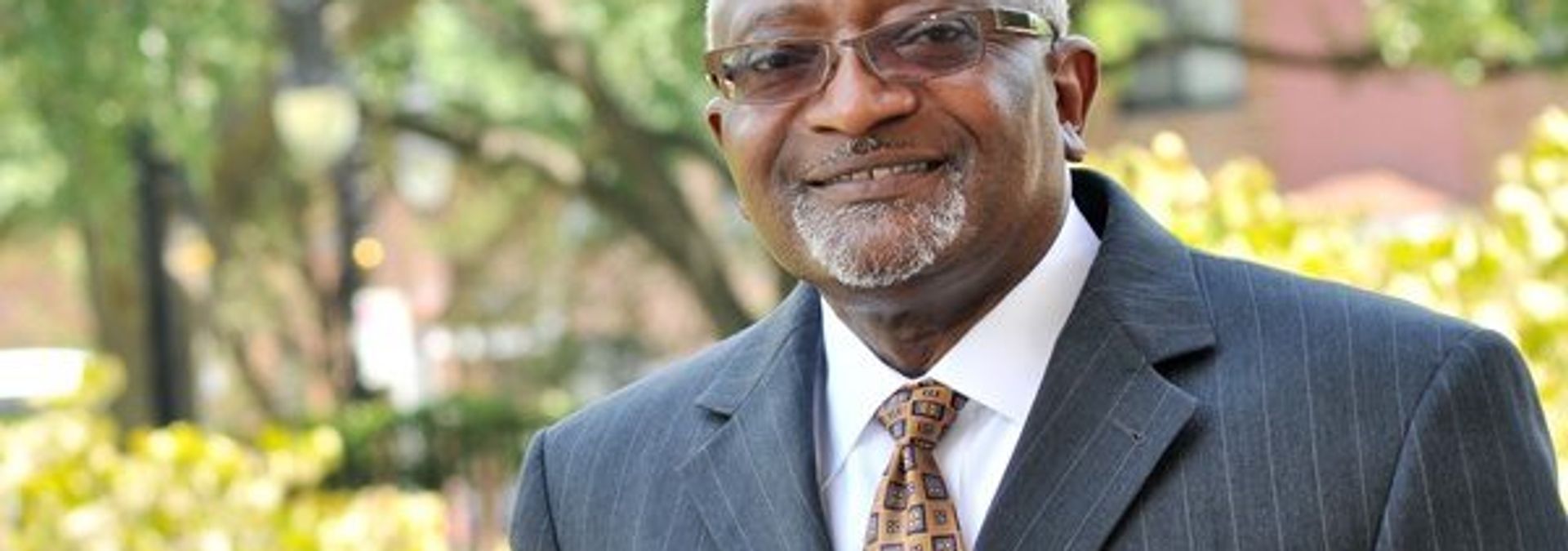
'A giant whose shoulders I stand on': The legacy of the father of environmental justice, Dr. Robert Bullard
Dr. Robert Bullard is known as "the father of environmental justice." Photo: Texas Southern University.
In the 1980s, Dr. Robert Bullard and his team at Texas Southern University in Houston's Third Ward found that most of the hazardous city-owned facilities like dumps and incinerators were being disproportionately sited in historically Black and brown neighborhoods. “Black Houston has become the dumping grounds for the city’s household garbage,” he wrote in the ‘90s. The first road the city paved into Sunnyside led to the dump.
This work helped illuminate larger patterns of racist discrimination in unequal exposure to pollution and lack of access to housing, transit, food, health care and other essentials — what the writer Brentin Mock calls “all of the good stuff" that allow communities to flourish — that have deepened and entrenched inequality.
Dr. Bullard’s relentless pursuit to demonstrate the disparities in the oil and gas capital of the world led to a recognition of the field now known as environmental justice. In 2020, the man known as “the father of environmental justice” was recognized with a Lifetime Achievement Award from the United Nations Environment Programme as a “Champion of the Earth.” His work began with markers, pushpins and maps, and it’s now the bedrock of a multigenerational, multiracial movement. Here, we collect reflections from organizers, writers, allies and advocates on his impacts on their own work.
— Allyn West
Iris Gonzalez
Environmental justice advocacy work can be very hard, and very discouraging, work. “Bob,” as he is known to many, approaches the work with joy, whimsy and humanity. When I think of the heart he brings to this global movement, I can’t help smiling.
But he is also steadfast in his commitment to equity, social justice and racial justice. He consistently lifts up and centers the most impacted communities. His leadership reminds us all what and who the work is really about. The best leaders know it’s not about them. They share power, grow knowledge and build movements — that’s exactly who he is. Dr. Bullard is one of those leaders who inspires you to be the best version of yourself.
As a young(er) leader in this multigenerational movement, I consider Dr. Bullard a giant whose shoulders I stand on. He co-founded the Coalition for Environment, Equity and Resilience (CEER), where I serve as director, to be a body that brings about environmental justice policy change, like revamping how we deal with flooding more equitably and addressing the climate crisis and a legacy of pollution and disinvestment.
We’re making progress. As he often says, it took a biblical event, Hurricane Harvey, to bring together mainstream environmental groups with social justice groups to work toward a common goal. His vision for us continues to lead to innovation and real change. We are so lucky to have his brilliant mind and the brilliant team he has created right here in Houston.
Bakeyah Nelson
Being asked to write a tribute to someone whom I have admired for so many years, in the midst of so many world crises, in many ways feels unfair, admittedly. It does not feel unfair just for me personally, but for the many communities in Houston and across the world that have, no doubt, learned and benefited from Dr. Bullard’s life work.
And it feels unfair because, particularly at this moment in history, we should be able to gather together and honor the depths of what it means for Dr. Bullard to have committed his life to the pursuit of environmental justice — a life he has spent working tirelessly with communities toward a life we all deserve but, for far too many, has been strategically denied since the establishment of this country.
Sometimes we project our own feelings on people we admire. At times, I’ve wondered what it must have been like for Dr. Bullard in the early years, before there was such an extensive catalogue of what we now call “environmental justice research.” I’ve long considered how challenging it must have been for him to put that first magnifying glass on the ways Black and brown communities were (and are) being intentionally poisoned with environmental hazards. And I’ve tried to imagine how profoundly disheartening it must have been, in the end, for his hypothesis to turn out right — as he illuminated with data yet another betrayal of this nation’s promissory note of equality and justice for all.
Yet he still chose, and he still chooses, to move forward with the necessary work. When the vision of “justice for all” has been obscured because of the relentless and committed forces that act against it, the forces he has helped us see, my mind rummages through its escrow of his voice and his words, and one message in particular reverberates: “This is a marathon, not a sprint.”
It’s at those times I am especially humbled and grateful for his words, his work and his commitment to us all.
Leah Binkovitz
To hear Houston tell it, the city’s tremendous growth has been thanks to a level-headed laissez-faire approach to planning — and progress.
This was the booster-backed image that confronted me when I moved here to work as a reporter at the local newspaper. If only Houston could stay out of its own way. The order of things was presumed natural, benevolent.
As Dr. Robert Bullard notes in Dumping in Dixie, though, one of his more than 20 books, Houston’s absence of planning was not the boon to all communities that it has long been told to be. Capturing the too-often-overlooked diversity of Houston’s Black communities and the long history of civic engagement among them, he also showed conclusively that the devastating ways land had been used and abused were part and parcel of racist oppression. Houston’s assent as one of the largest cities in the country, he showed, relied on using Black and Hispanic neighborhoods as dumping grounds.
Nevertheless, chronicling for the paper the many iterations of campaigns to stop illegal dumping in neighborhoods throughout the city, I came across a persistent attitude from officials, one that blamed the neighborhoods for the city’s inability or unwillingness to change any of it. “We can give you the instruments,” Mayor Bill White told a crowd in Kashmere Gardens. “But if there is no band to play, there won't be any music.”
It’s been decades since Bullard wrote some of his most influential work, but his insights are ones Houston has yet to fully acknowledge: namely, that its growth, its “success,” has relied on racist structures no amount of scaffolding can obscure.
Matthew Tejada
It is rare that one has the opportunity to meet, let alone work with, a titan of our society.
Rarer still when that titan continues to practice in and advance the field that he helped to first articulate — and is still willing to march out along the front lines.
To be in the same room with Bob as he engages with communities now entering into the struggle that he was among the first to put into written words, to sit in an audience as he cheerfully checks the reality of so many who think they know better, to have a quiet, quick moment with him on the sidelines of an impromptu encounter have and continue to be among the greatest privileges professionally of my career and personally of my life.
His words are not only what continue to propel us forward, but they do so always in the right direction.
Charles Lee
A scholar, activist and warrior for civil and human rights, Dr. Bullard is one of the people who gave birth to the environmental justice movement in the U.S. His numerous books illumined the multiple dimensions of environmental racism and injustice and served as a platform for many other activist and scholarly voices. His work has made an indelible mark on the history of the nation. I am proud to have traveled the same arc of environmental justice history with Bob from the days when we worked on an issue that did not have a name to today, more than 40 years later, when environmental justice is embraced as a national priority by the highest level of American government.
Justin Onwenu
I attended college in Houston because of Houston’s diversity and my interest in medicine. In 2017, my final year at Rice University, Hurricane Harvey left a stark trail of racial disparities and unequal health impacts.
It was clear that the storm was not an "equal opportunity," as many said. Many of Houston’s Superfund sites, refineries, waste facilities and other industrial operations — located mainly in Black and Hispanic neighborhoods, due to decades of segregation — flooded and exposed residents to toxic harms.
A year after the storm, working for the Children's Environmental Health Initiatives in Houston, I saw that many of these neighborhoods were still recovering and dealing with compounded forms of inequality. Long after people forgot about Harvey, I met a mother whose son’s bedroom had been overtaken by mold.
Reading Dr. Bullard’s work allowed me to connect the apparent local disparities to larger systemic forms of injustice. His work also gave me the framework and inspiration to bridge together my interest in public health and racial justice, urban planning and environmental policy. It is this greater understanding that drove me to environmental justice organizing work.
Now, three years later, I am fighting for clean air and water in Detroit. He has inspired a new generation to take up the fight. His work looms large, guiding organizers, lawyers, lawmakers and allies thousands of miles away. In Michigan, people of color make up 25 percent of the state’s population, but 65 percent of those who live near hazardous waste facilities. Because of the groundbreaking work of Dr. Bullard, we can understand the root causes and take head on such environmental injustice.
Gonzalez is coalition director of CEER; Nelson is executive director of Air Alliance Houston; Binkovitz is a writer living in Houston; Tejada is director of the Environmental Protection Agency’s Office of Environmental Justice and formerly executive director of Air Alliance Houston; Lee is senior policy advisor for environmental justice at the EPA and formerly director of the environmental justice program at the United Church of Christ; Onwenu is an environmental justice organizer with Sierra Club.
STAY UP TO DATE
The quality of our newsletter is considered satisfactory and poses little or no risk.
SUBSCRIBE

